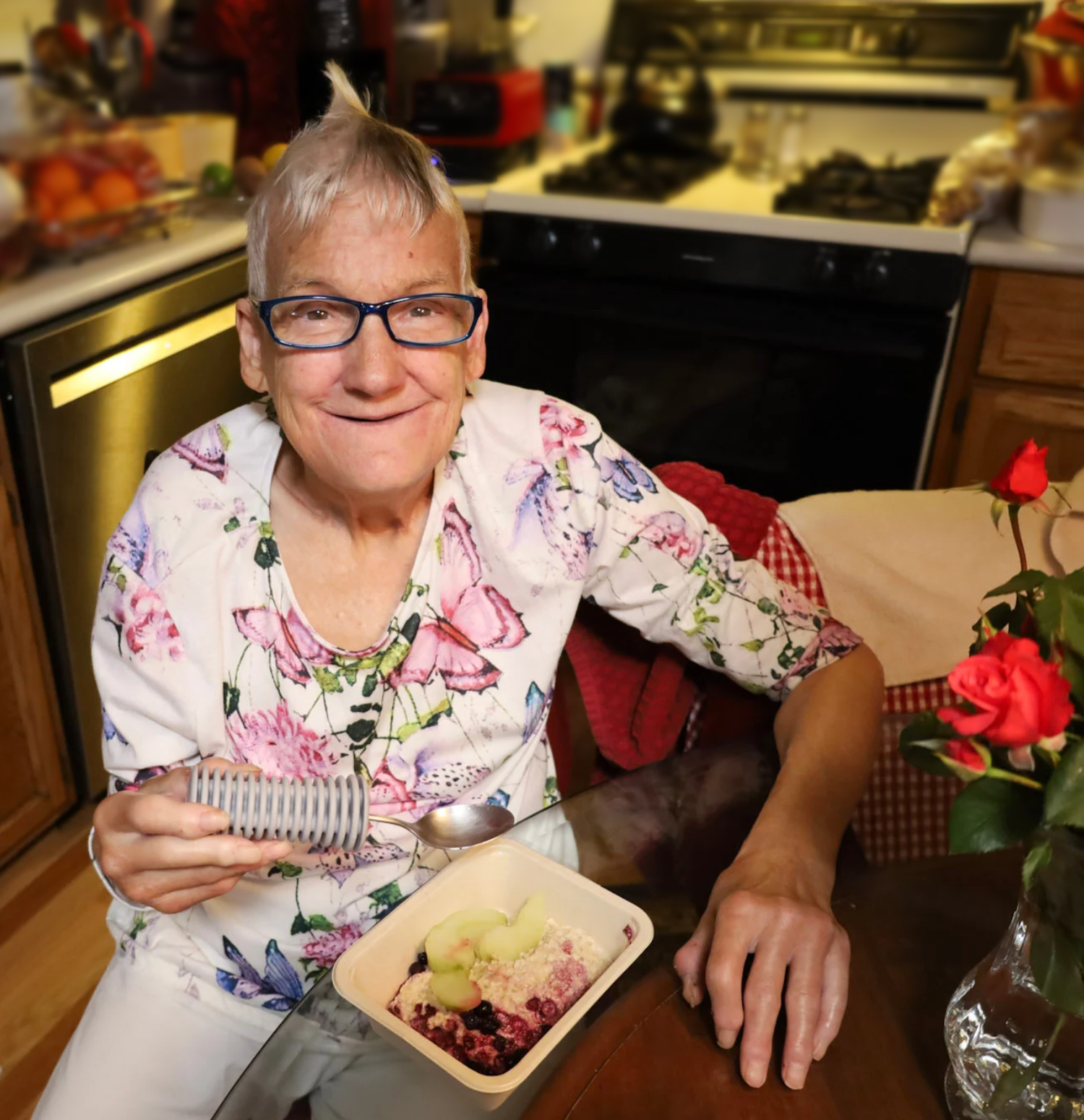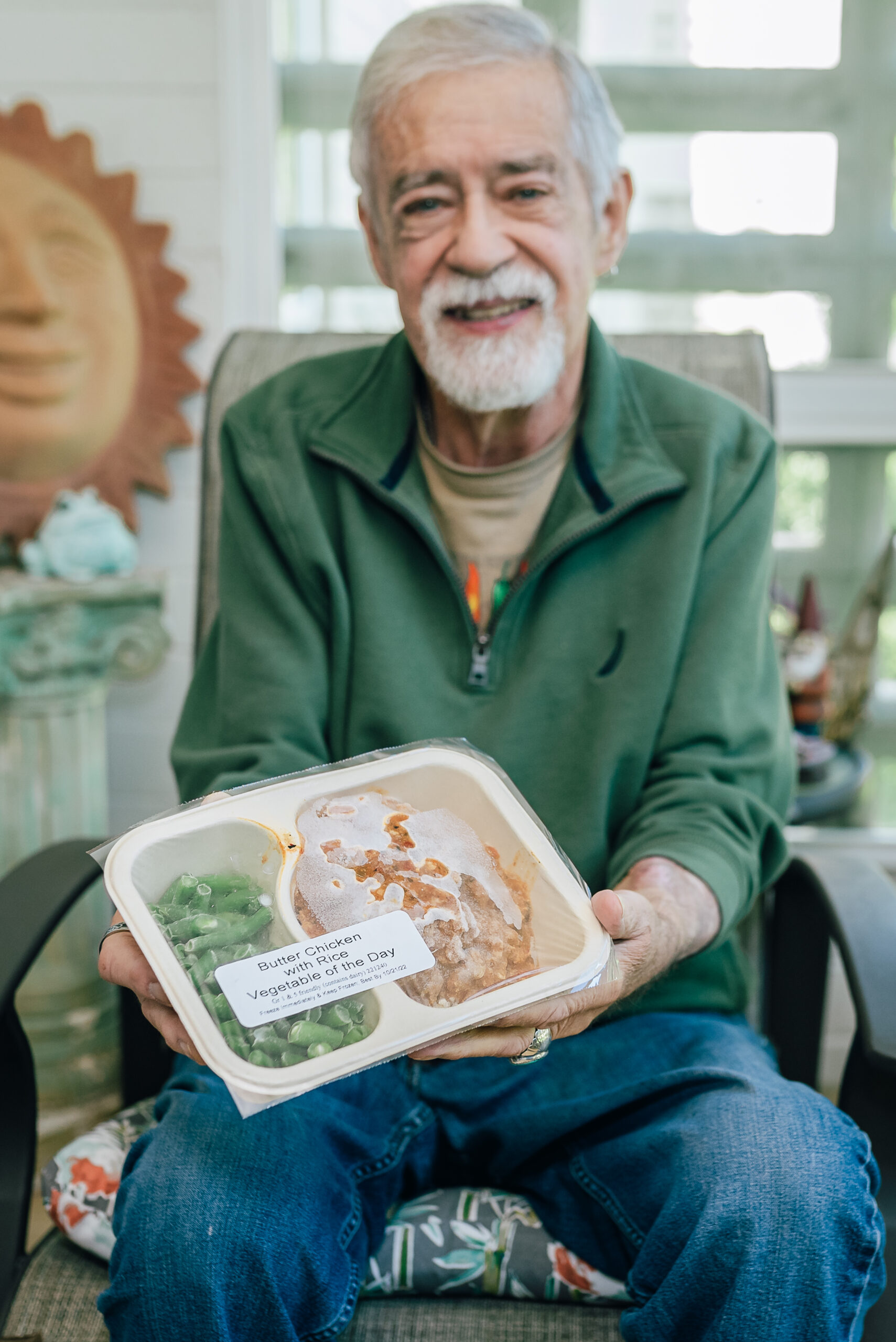Medline Community Impact Grants fund life-changing meals and support

By Medline Newsroom Staff | November 21, 2023
The Medline Foundation recently awarded Community Impact Grants to Project Angel Food and Project Angel Heart, two nonprofit organizations that address food insecurity and health inequity.
Project Angel Food was founded in 1989 in Los Angeles when a small group of compassionate men and women banded together to bring meals to friends who were isolated at home, sick with HIV/AIDS. That small gesture of kindness blossomed into today’s 63 delivery routes, 3,400 volunteers and 1.6 million medically tailored meals delivered free each year to more than 4,000 people. These are people who have diabetes, congestive heart failure, cancer and other diseases — and many who live in low-income and low-food-access areas.
In 1991, one of Project Angel Food’s original volunteers brought the idea to Denver and founded Project Angel Heart with the same, simple idea. “The group got a pan of lasagna donated, split it into 12 pieces and delivered it,” says Project Angel Heart Director of Marketing and Communication Kristy Adams.
“While many programs address hunger, we specifically look at nutrition to address illness.”
Kristy Adams
Director of Marketing and Communication
Project Angel Heart
Since that time, Project Angel Heart has also shifted its focus “from providing food as comfort during illness to providing food as medicine.” They have gone on to prepare and deliver 750,000 medically tailored meals annually to more than 5,000 Coloradans with severe illnesses. In December, they’ll mark their 10-millionth meal.
Dietitians and chefs develop medically tailored meals to target a range of needs and even incorporate culturally significant flavors. “While many programs address hunger, we specifically look at nutrition to address illness,” Adams notes.
The individual impact of food for better outcomes
 “Food is medicine” began as “a kooky California idea,” says Project Angel Food Director of Institutional Giving and Strategic Partnerships Mindy Glazer. It’s now been proven that access to nutritious foods can lead to less patient stress, fewer hospital readmissions, lower healthcare costs and better health outcomes.
“Food is medicine” began as “a kooky California idea,” says Project Angel Food Director of Institutional Giving and Strategic Partnerships Mindy Glazer. It’s now been proven that access to nutritious foods can lead to less patient stress, fewer hospital readmissions, lower healthcare costs and better health outcomes.
To these two grant recipients, food is medicine means even more than that. “One of our mottos is ‘for life, for love, for as long as it takes,’” Glazer says. “We’re coming face to face with the people we serve, and you notice things going on and can connect them with other resources to get them help,” she explains.
“At the core of what we do, it’s showing up, letting someone know that we care, delivering them a meal that’s actually going to help them feel better,” says Project Angel Food Director of Communications and Talent Relations Brad Bessey, who was also one of the original volunteers. While the number of meals served is impressive, Bessey says it’s about each individual. “We’re making sure that we’re meeting those dietary needs. And then we’re making sure that we’re making that human connection.”
Bessey recalls a client named Luke whose doctor told him that he’d be on dialysis, but Project Angel Food’s meals changed his trajectory so much so that dialysis is no longer inevitable; and Madeline who has had two strokes and is unable to get out of her house and the only contact she has with others every day is her Project Angel Food delivery.
“At the core of what we do, it’s showing up, letting someone know that we care, delivering them a meal that’s actually going to help them feel better.”
Brad Bessey
Director of Communications and Talent Relations
Project Angel Food
 Project Angel Heart describes similar stories: the young Marine veteran diagnosed with multiple sclerosis who cried when his first meal was delivered, and 58-year-old Elizabeth who says receiving meals during chemotherapy treatments helped her regain energy and sleep better.
Project Angel Heart describes similar stories: the young Marine veteran diagnosed with multiple sclerosis who cried when his first meal was delivered, and 58-year-old Elizabeth who says receiving meals during chemotherapy treatments helped her regain energy and sleep better.
Another benefit of the meal deliveries, Bessey says, is better adherence to treatment plans overall. “We find that our clients are more likely to make their doctors’ appointments, they’re feeling better and more compliant with medication schedules.”
Supporting the growing need
There are many success stories like these, but the need continues to grow and inflation has had an impact on their costs. The Medline Foundation grants help these organizations continue to serve. “We put every single dollar back into the meal program,” Bessey says. To keep up with need, Project Angel Food has kicked off a project to double the size of their facility, making the grant even more important to help support their general operating budget.
“By addressing food insecurity and improving health for low- to moderate-income individuals through the provision of medically tailored nutrition,” Adams says, “we are working to address one social determinant of health.”
The Medline Community Impact Grant Program was established in 2018 to award results-focused grants to improve, or continue to improve, community health by addressing social determinants of health. Through collaboration with community experts, we can provide essential resources, help re-direct adverse outcomes and improve the well-being of people, families and the community at large.
Read more about the 2023 Medline Community Impact Grant recipients.
Learn more about how Medline is making a difference in our communities.
Medline Newsroom Staff
Medline Newsroom Staff
Medline's newsroom staff researches and reports on the latest news and trends in healthcare.

